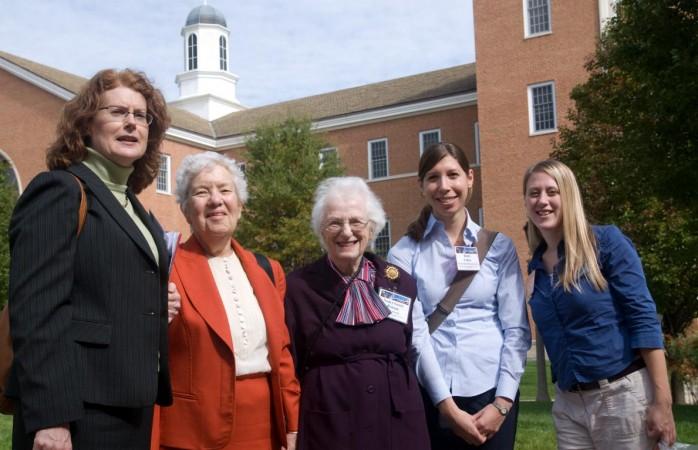
Vera Rubin, an American astronomer who found significant evidence about Dark Matter, passed away on Sunday night at the age of 88 due to dementia, her son confirmed.
Rubin was also known for encouraging women to take up science. She was the only astronomy major to graduate from the women's college, Vassar, in 1948. She had received a scholarship to study there. She had also applied to Princeton, which did not accept women in the astronomy stream until 1975.
She went on to graduate from Cornell, where she studied physics under Philip Morrison, Richard Feynman and Hans Bethe, and did her PhD from Georgetown University in 1954 under George Gamow.
She taught for a few years in Georgetown before taking up research at the Carnegie Institution in Washington. It was in Carnegie that Rubin and Kent Ford, who had developed an extremely sensitive spectrometer, found evidence of Dark Matter.
While Dark Matter was proposed by Fritz Zwicky back in 1933, it was Ford and Rubin who confirmed its presence.
In 1981, Rubin became the second female astronomer to be admitted for membership in the National Academy of Sciences. She also received a National Medal of Science.
"Fame is fleeting," Rubin told Vassar College's Hall of Fame for women in science. "My numbers mean more to me than my name. If astronomers are still using my data years from now, that's my greatest compliment."
Rubin observed more than 200 galaxies during the course of her career.
Her fans lament that she never received her due, and was not awarded the Nobel Prize.
"Vera Rubin's work deserved a Nobel Prize. But her as a person? She made science kinder & the culture of research more human," wrote science writer Mika McKinnon.
I confirmed with family that #VeraRubin died Dec 25, 2016. I'd like to help collect her stories. Ping if you want to talk. #RIPVeraRubin https://t.co/TOLv7j6B5u
— Mika McKinnon (@mikamckinnon) December 26, 2016
"RIP Vera Rubin, a great scientist who found evidence for what we now call dark matter," said Dr Paul Cox, a physicist at Cambridge University.
Rubin, who was a Twitter user, last posted from her account on February 4.
Don't let anyone tell you that you aren't good enough.My science teacher once told me I wasn't good enough for science and look at me now.
— Vera Rubin (@rubin_vera) February 4, 2016
Don't shoot for the stars, we already know what's there. Shoot for the space in between because that's where the real mystery lies.
— Vera Rubin (@rubin_vera) February 4, 2016
A Sim of the dark matter distribution 13.6 billion years ago. I think this is beautiful pic.twitter.com/fVkmQ7FzvW
— Vera Rubin (@rubin_vera) February 4, 2016

















